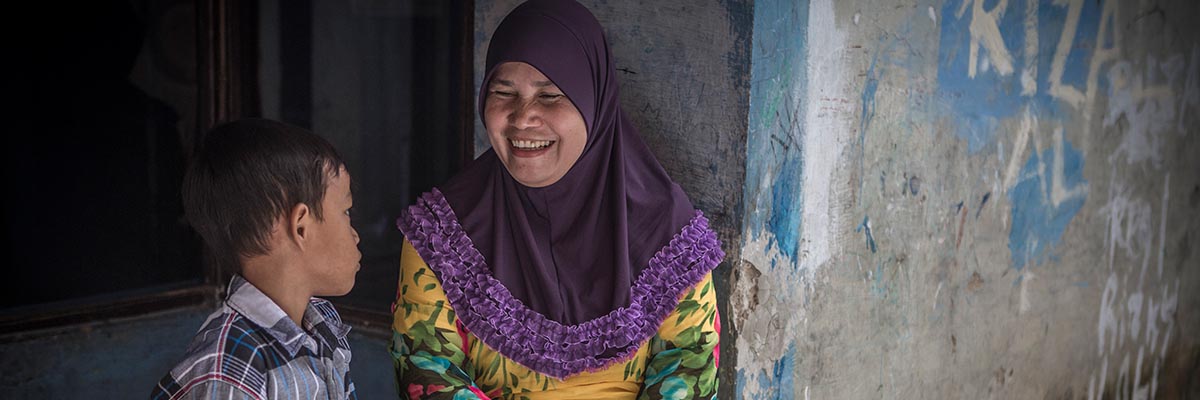Global program to reduce harm caused by orphanage tourism wins a silver medal in the 2018 World Responsible Travel Awards
More than 8 million children live in institutions (like orphanages) globally, even though about 80 per cent of these children have family who could care for them, given the right support.
Children who grow up in orphanages experience attachment disorders, developmental delays, and have difficultly forming relationships in adulthood. The effects of growing up in an institution can last a lifetime and even impact upon following generations.
The
Rethink Orphanages network, of which Save the Children is a founding member, works to reduce the negative impacts of voluntourism on children and communities.
This year, ReThink Orphanages won a silver medal at the World Responsible Travel Awards, which celebrate initiatives that improve responsible tourism practices around the globe. The award, which was in the category for "Best for Communicating Responsible Tourism", was announced on 7 November, World Responsible Tourism Day, at the WTM World Responsible Travel Awards in London.
What’s the problem with voluntourism?
Save the Children’s Child Protection Advocate, Karen Flanagan AM, says tourism is creating a demand for ‘orphans’ and ‘orphanages’.
“We know children around the world are being exploited and removed from their families to fuel the rising demand for orphanage tourism, and we need to do everything we can to protect these children, and one of the best ways to do this is by raising awareness and reducing this demand,” Ms Flanagan said.
“Most of the students and schools involved with orphanage tourism are well meaning, and that is why we need a comprehensive approach to our awareness campaign on this issue.”
Karen was a founding member of ReThink Orphanages. She was invited to join because of her long experience working to protect children and strengthen families. Karen has had a distinguished career working to prevent and reduce all forms of violence against children and provide psychosocial recovery interventions when abuse occurs.
Karen helps to create programs for Save the Children which prevent family separation and reduce the vulnerabilities of children who are in institutional care (such as orphanages). Karen is also experienced in working with governments and businesses to create stronger laws and policies which protect children from harm, and she has been actively involved in influencing the need for orphanage trafficking and tourism to be included in the new Modern Slavery laws and accountability mechanisms.
Bringing families back together
When they fell on hard times, Dina* and her husband felt they had no choice but to send their youngest son, Edi* to live in an orphanage.
“I didn’t have any option to care for him at home,” says Dina. “Many babies are being abandoned, I don’t want to be like that. So, I felt I had to put Edi in an institution – not to be abandoned, but left there for a while, so I can bring him home in the future.”
But Dina was haunted by the decision she felt forced to make. “When Edi first entered the orphanage, I felt I was in limbo, between dead and alive … I couldn't sleep, I didn't want to eat.”

Aware of Dina’s situation, Save the Children workers spent time with the family and convinced them that – even without a lot of money – their family was still the best place for Edi to grow up.
Edi has now returned home. “When I went to the orphanage to take Edi home, I was so happy … I thought he might not like it here. I thought he would not want to be in this house. But he and I bonded immediately and we didn't want to be apart from each other anymore.”
Thanks to generous supporters like you, in the last three years more than 1,000 girls and boys in Indonesia have been protected from the risks of institutional care thanks to Save the Children’s program.
*Names changed to protect their identity